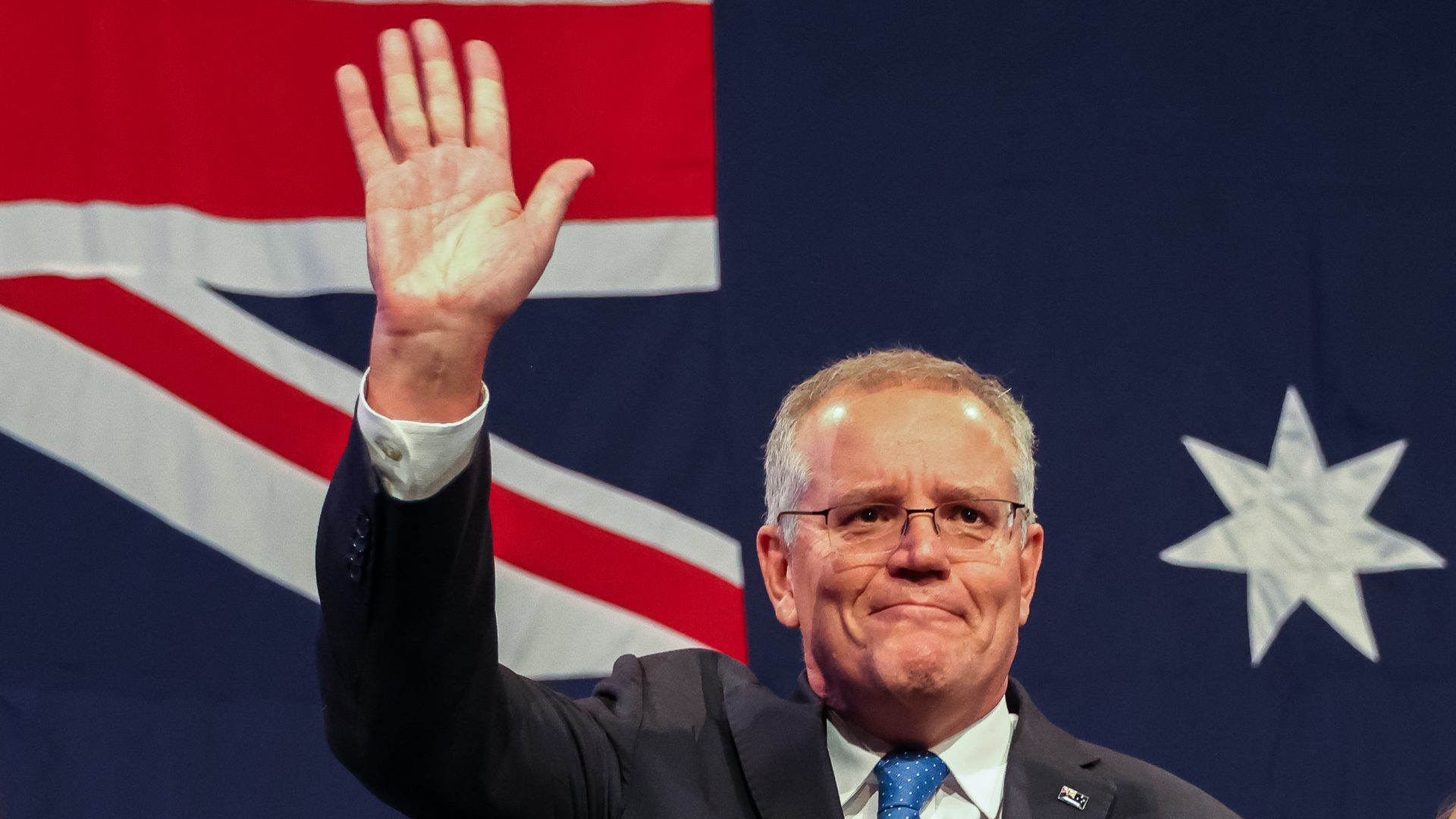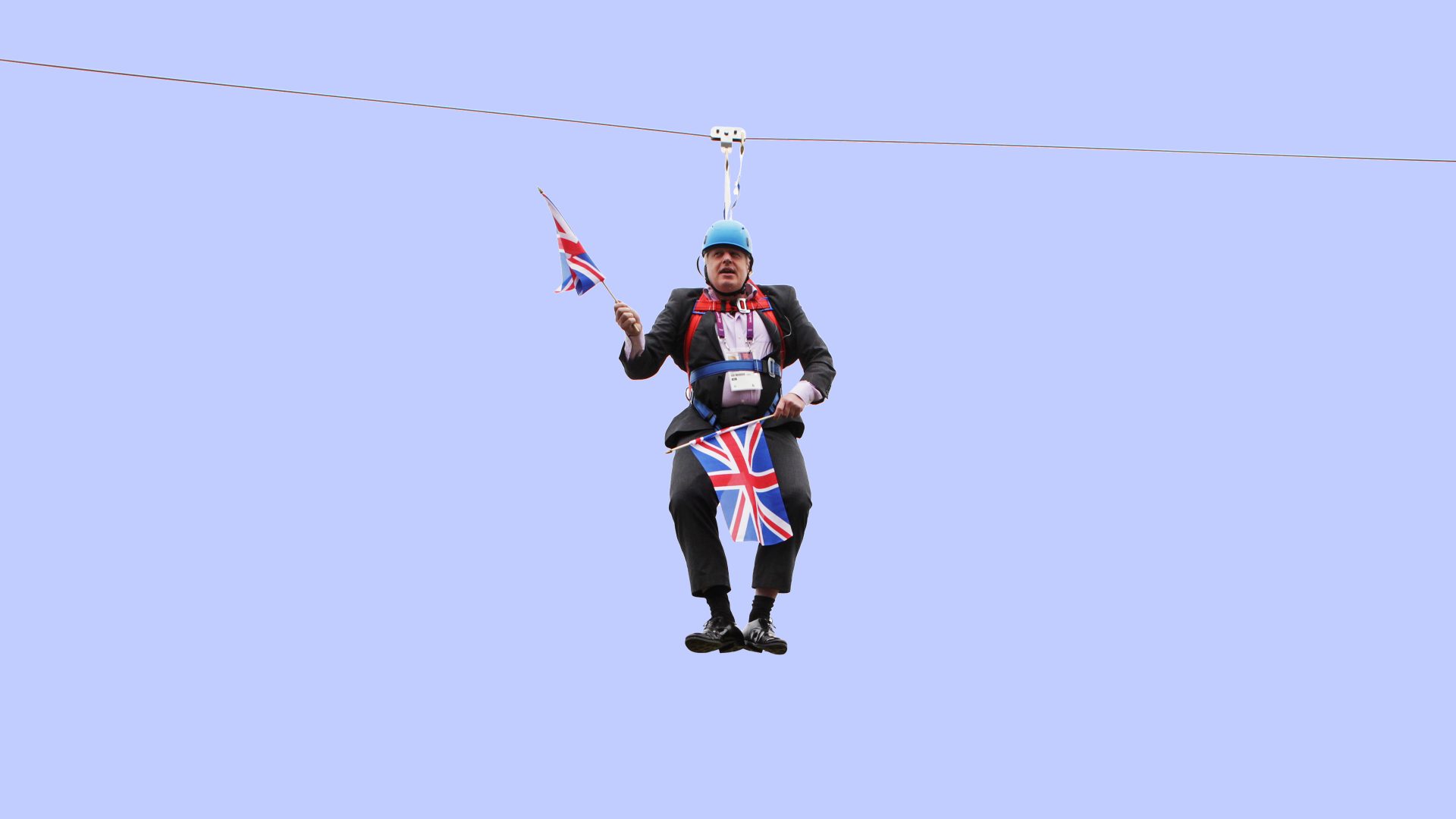Switch on the Today programme, tune into a King’s College London politics lecture, and the chances are that you will hear an Australian voice. Having antagonised our erstwhile friends in the EU and finally understood the waning of our intimacy with America, British politicians – particularly Conservatives – have been turning increasingly to Australia for advice and solace.
That is why the defeat of the incumbent prime minister, Scott Morrison (Liberal in name but not in ideology), is so important in mapping the post-confidence vote future of Boris Johnson and his partygoing, populist brand of politics.
As in the UK, the right in Australia have dominated government over recent decades, producing a series of big-beast and often loud-mouthed men (the only woman so far, Julia Gillard, was hounded for both her sex and her Welsh roots). John Howard, in power for over a decade from the mid-90s, was credited with some serious reforms. Malcolm Turnbull’s tenure from 2015 to 2018 was dogged by political in-fighting. Tony Abbott (2013-15) is most remembered for beachside appearances in budgie-smuggling Speedos.
Over the past four years, Morrison has injected into the debate a divisiveness that even by Australian standards has been strident. The self-styled political warrior was famous for his one-liners – “stop the boats” for clamping down on immigration, “axe the tax” for tax cuts, and “ditch the witch”, an exhortation to voters to remove Gillard as prime minister.
The defeat of the man dubbed “ScoMo” matters for the one often called “BoJo”. It carries warning signs for Britain’s Conservatives.
Morrison took office in 2018. In May the following year, his government teetering on the brink, he called an election and secured a surprising victory. That was seven months before Johnson’s own landslide. From then on, they were joined at the hip, schooled in the arts of dark campaigning by Lynton Crosby and latterly by his protégé, Isaac Levido.
Both were advised to focus on so-called wedge issues, projecting tough-man poses on crime and immigration and churning up endless arguments about “woke”, “cancel culture” and effete metropolitan voters. Both have also presided over a political culture of booze and sexual boorishness.
Their one discernible difference has been on climate change. Encouraged by his wife, Carrie, Johnson continues at least to affect a desire to deal with the emergency. No matter how great the environmental catastrophes afflicting Australia, Morrison has defiantly gone the other way.
Famously, as a minister in 2017, he attempted to ridicule the opposition’s commitment to renewable energy by brandishing a lump of coal inside the parliamentary chamber in Canberra and declaring: “Don’t be afraid, don’t be scared, it won’t hurt you.” Morrison relented, under duress, at the Glasgow Cop26 conference and committed Australia to net-zero by 2050. Even then, he made clear his very Trumpian view of green issues.
The Australia result is being hailed as a realignment of politics; it may be a curious and incomplete one, but it raises a number of questions for the British scene. The Liberals suffered particularly badly in the more affluent parts of Sydney and Melbourne; Morrison’s more moderate supporters punished him for taking them for granted, mocking them even. This is a mirror of Johnson’s increasing travails in his so-called Blue Wall of southern English seats.
Yet in Australia, they did not stampede towards the opposition. In his manner and strategy, the new PM, Labor’s Anthony Albanese, is quintessential Sir Keir Starmer.
Albanese is not over-endowed with charisma or self-confidence. His “small target” strategy focused on giving his opponents and the Murdoch media as little to bite on as possible. In that respect, they largely succeeded. In policy terms, it presages little change of note in key issues such as immigration, where Australia’s approach of sending would-be asylum seekers off to Christmas Island is seen as a model for Priti Patel’s madcap Rwanda idea.
Instead of turning to Labor, a third of Australia’s voters turned to newcomers. The most impressive and surprising of them were the “teal” independents. These are professional women – combining the green colour of the climate movement and the blue of a moderate conservatism – who had been alienated by Morrison.
Britain’s first-past-the-post system makes it extremely tough for such movements to make headway. But it may suggest a revival for the Liberal Democrats, opening up the possibility of a progressive electoral alliance with Labour.
Does this mark a broader upturn in fortunes for the centre-left elsewhere? If so, it is almost by stealth. Another model for Albanese, or “Albo” as he is known, is Olaf Scholz. Germany’s Social Democrat candidate managed to slink in between the conservatives and the Greens last September by saying as little meaningful as possible. This “keep your head down” approach has ill-suited him as chancellor, where he has struggled to cut a convincing figure both at home and on the international stage.
Albanese has made clear he will overhaul policy on climate change. On other issues, like previous newly installed centre-left leaders, he has made a point of emphasising continuity and not rocking the boat. He will not be quickly changing Canberra’s tougher line towards China, though the tone may be less abrasive. He has made clear he wants to improve relations with France, still smarting from the stitch-up over the Aukus submarine sale.
Johnson has lost another close ally in international politics, but he has tried not to show it, congratulating Albanese on his election. He has sought to ensure that relations are on an even keel with Joe Biden, but everyone knows he would rather be standing on a platform with Trump and Morrison.
Australia’s voters seem clear in their minds about what they no longer want: Morrison’s red-meat style of politics, even if the alternative does not delight them.
That is the clear warning to Johnson and his ilk. Voters are not gushing about Starmer; he’s not going to win a landslide; he might just scrape over the line, or he might need a coalition or another arrangement with the Lib Dems or SNP. But like Tory MPs, voters are inching towards change.
Johnson’s many remaining friends in the right-wing media are sufficiently worried to be writing denunciations of Starmer that become ever more colourful by the day, alongside exhortations to the prime minister to demonstrate some true-blue mettle.
In the Daily Mail last week, the ever-loyal commentator Daniel Johnson (no relation), warned readers that events in Australia could be replicated in the UK. He painted a picture of a dangerous enemy. Morrison, he said, had been “turfed out of office by a rag-tag alliance of woke Lefties, Green eco-warriors and latte-sipping independents.”
That is a prospect to instil genuine terror into Conservative believers.




